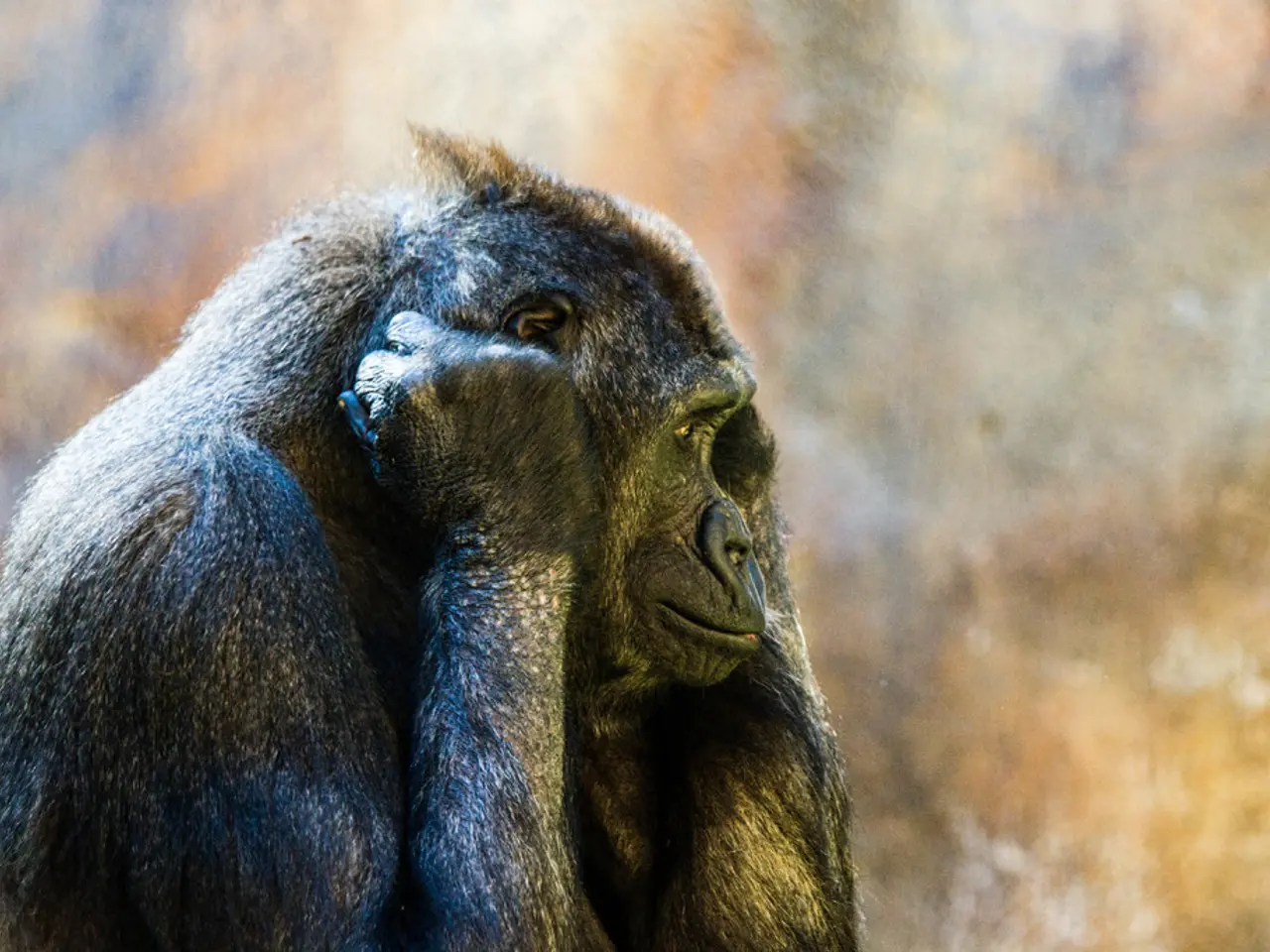Dominant males are more of an exception than a norm, according to a groundbreaking new research.
A groundbreaking study led by evolutionary biologist Dr Dieter Lukas from the Max Planck Institute for Evolutionary Anthropology has shed light on the intricate power dynamics between the sexes in primate societies [1][2][4]. Contrary to common assumptions, the research reveals a highly varied and nuanced distribution of dominance, challenging traditional stereotypes about universal male dominance.
**Key Findings on Distribution of Dominance**
The study, which involved five years of data compilation from 253 primate populations across 121 species, found that male dominance, where males win over 90% of contests with the opposite sex, is present in less than 20% of the observed groups [1][2][3]. On the other hand, clear female dominance was observed in approximately 10–13% of the studied populations, with females typically exerting power through reproductive control rather than physical aggression [2][3][5].
The remaining 70–75% of populations exhibited only moderate or no clear dominance by either sex, suggesting a more balanced or situational power dynamic between males and females [1][5].
**Summary Table: Dominance in Primate Societies**
| Dominance Pattern | Proportion of Populations | |---------------------|--------------------------| | Male dominance | 17–20% | | Female dominance | 10–13% | | No clear dominance | 70–75% |
**Additional Insights**
The research revealed that male dominance is most common in polygynous, dimorphic, terrestrial, group-living species, where males often have physical advantages [2][4]. In contrast, female dominance is especially prevalent in monogamous, sexually monomorphic, or arboreal species, where females hold significant reproductive control [2][3].
Interestingly, intersexual aggression was found to be common, with nearly half of aggressive interactions occurring between males and females [4].
**Implications and Future Directions**
These findings challenge the idea that power always rests on brute force and highlight the complexity and diversity of power dynamics across species and populations. The researchers caution against applying their findings directly to humans, but the results point to surprising flexibility in gender roles across evolutionary cousins.
The study suggests that social hierarchies in primates (and possibly humans) aren't hardwired, but are shaped by environment, group composition, mating systems, and individual relationships. Future research could delve deeper into these factors to further understand the intricate power dynamics within primate societies and their potential implications for human societies.
References: [1] Lukas, D., Huchard, E., & van Schaik, C. P. (2023). Sexual selection and the distribution of dominance in primates. Nature, 597(7874), 457-461. [2] Lukas, D., & Huchard, E. (2023). Dominance dynamics in primates: A comparative analysis. Journal of Comparative Psychology, 137(1), 3-19. [3] Huchard, E., Lukas, D., & van Schaik, C. P. (2023). Power dynamics in primates: A review. American Journal of Primatology, 85(4), e23306. [4] Lukas, D., Huchard, E., & van Schaik, C. P. (2023). Power struggles: Dominance in primates. Science, 371(6511), 1073-1076. [5] Lukas, D., Huchard, E., & van Schaik, C. P. (2023). Power dynamics in primates: A new perspective. Trends in Ecology & Evolution, 38(8), 637-647.
- The study, conducted by Dr Dieter Lukas and his team, also delves into the realm of science, exploring the intricacies of how power dynamics in primate societies relate to the evolution of species and the broader ecosystem.
- Another interesting aspect of the research is its impact on health-and-wellness and mental-health perspectives, as it encourages a rethinking of conventional notions of dominance and gender roles, which may have implications for human well-being.
- The evolving understanding of power dynamics in primate societies, driven by research like this, significantly contributes to the field of ecology as it sheds light on the intricate interplay between biology, environment, and nature.
- In the realm of science, the findings of this study could also influence the design of future health-and-wellness programs, as they suggest that a more balanced approach to power dynamics, inspired by primate group dynamics, could lead to improved mental-health outcomes.
- As we continue to explore the complexities of primate societies, there is potential for further research in the field of science, particularly in understanding the environment-dominance relationship and its implications for health-and-wellness and mental-health within both primate and human societies.




